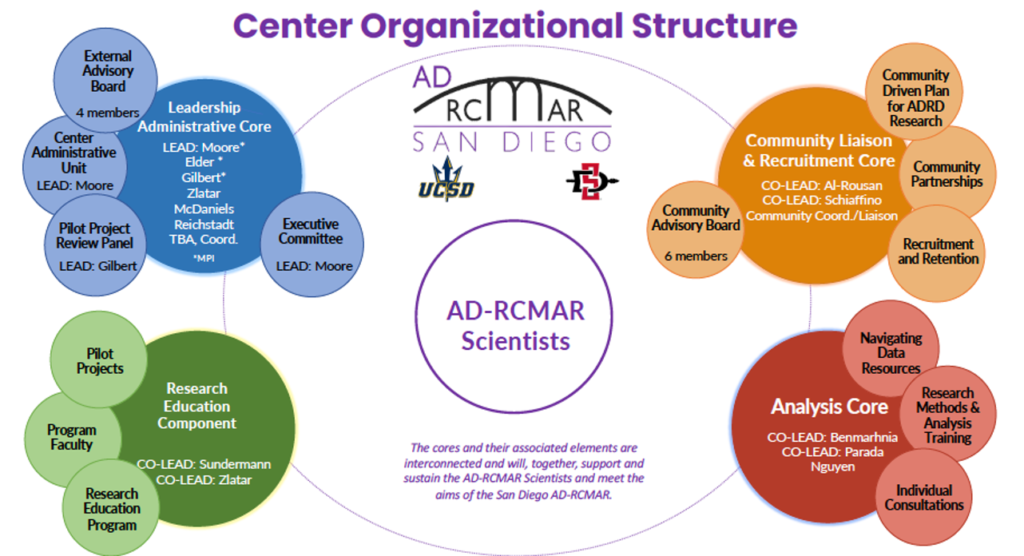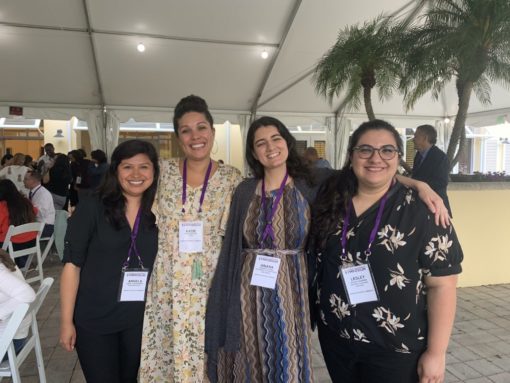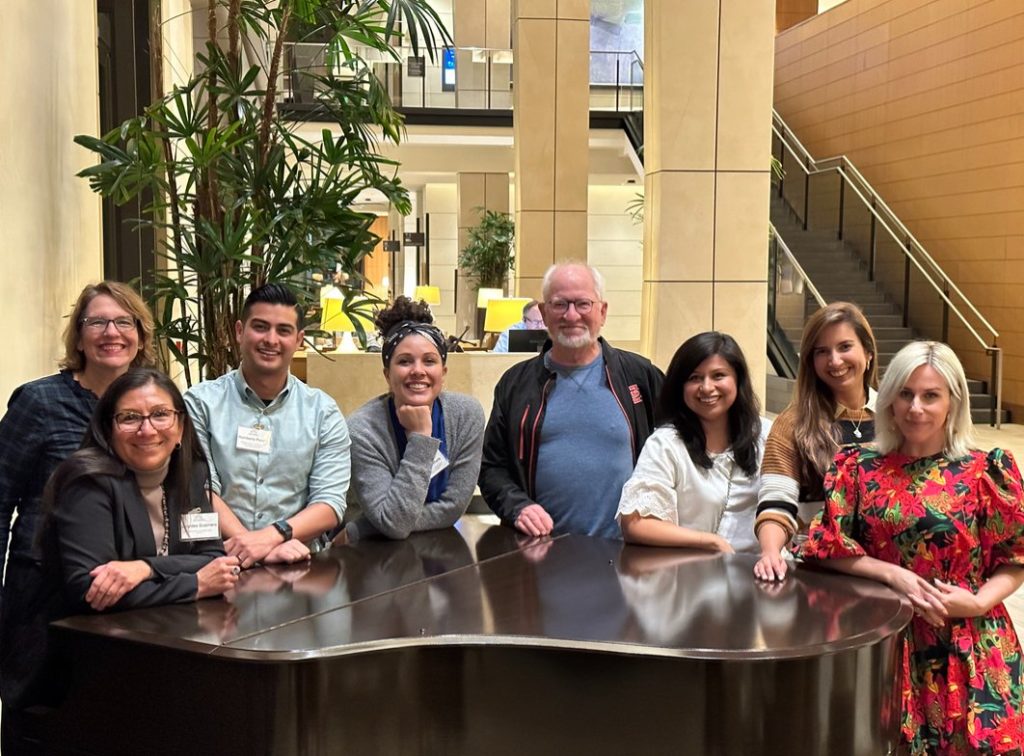The San Diego AD-RCMAR consists of four cores designed to help our Center achieve its aims:
The Leadership and Administrative Core (LAC): Provides administrative and intellectual leadership to the SD AD-RCMAR to 1) plan, manage and coordinate its activities among the cores, committees, Scientists, and with both the network of AD-RCMARS and RCMARs, and NIA; and b) ensures the Center maintains its focus on multilevel factors to inform interventions addressing ADRD inequities in our Center’s priority populations.
The Research Education Component (REC): Nurtures AD-RCMAR Scientists via DEIA-grounded mentorship, education, career development activities and resources to attain independent research careers and leadership skills. The REC 1) Identifies, recruits and trains annually at least three outstanding Scientists primarily from underrepresented groups to conduct research aligned with the Center’s focus; 2) Provides DEIA (Diversity, Equity, Inclusion and Accessiblity)-grounded training and research support, a core educational curriculum, team-based mentoring, linkage to resources and collaboration opportunities, and regular evaluation.
The Analysis Core (AnC): Supports and trains in quantitative and qualitative analytic techniques for the collection, management, and analysis of data, facilitate access to existing sources of data for ADRD research, advise on the use of culturally appropriate, unbiased, and psychometrically valid measures and assist scientists to disseminate their research findings. The AnC 1) facilitates access to and understanding of secondary data sources related to the Center focus; 2) advises on the use of culturally and linguistically appropriate measures; 3) provides education on study design, data collection, management and analysis for quantitative and qualitative data; and 4) assists in dissemination of Scientists’ research.Members: Benmarhnia, Parada* and Schairer.
The Community Liaison and Recruitment Core (CLRC): Trains Scientists in community engaged research approaches, to build trust and open communication with our focus populations, and to generate new knowledge of recruitment and retention methods to improve representation of Latinos, LEPs and refugees in ADRD research that matters to the community. The CLRC 1) Enhances education and training on community-engaged research approaches; 2) Builds and strengthens community collaborations to increase trust and communication; and 3) Promotes recruitment and retention of diverse populations in ADRD research.



